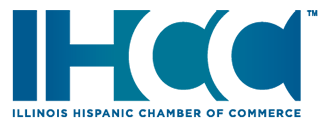CategoriesIHCC News
The House of Representatives voted to approve a $1.9 trillion Covid relief plan, a top legislative priority for President Joe Biden.
Much of the legislation mirrors the plan laid out by Biden in January. But lawmakers did make three notable changes – narrowing eligibility for the stimulus checks, trimming the federal boost to unemployment benefits and nixing an increase in the federal minimum wage to $15 an hour.
The bill includes funding for a wide variety of programs, including key areas of advocacy for the City of Chicago.

Some highlights include:
- $350B in direct aid to state and local governments: this has been a key priority for Chicago. Chicago would receive a direct allocation, as would Cook County, and municipalities of all sizes across the state and country. The state of IL would also receive a direct allocation.
Small business
- Additional $15B for EIDL grants
- $25B for restaurant grants
- expanded PPP eligibility for 501(c) nonprofits except lobbying 501(c)4 (this expands to YMCA);
- Additional $1.25B for shuttered and struggling live venues.
- 10B for the State Small Business Credit Initiative for small business financing, including up to $2.5 billion to support business enterprises owned and controlled by socially and economically disadvantaged individuals, including minority-owned businesses.
Schools
- $130B for K-12 (including funding for CPS)
- $40B for higher ed
Transportation
- $8B for airports, including O’Hare and Midway
- $15B to support workers in the airline industry through payroll support program
- $30B for transit, including Chicago
Individual assistance:
- Give working families an additional direct payment of $1,400 per person—bringing their total relief to $2,000 per person.
- Extend temporary federal unemployment and benefits through August 29, 2021; increases the weekly benefit from $300 to $400.
- Enhances the Earned Income Tax Credit for workers without children by nearly tripling the maximum credit and extending eligibility.
- Expands the Child Tax Credit to $3,000 per child ($3,600 for children under 6), and makes it fully refundable and advanceable.
- Extends the Families First Coronavirus Response Act paid sick time and paid family leave credits from March 31, 2021 through September 30, 2021; allows time for vaccinations
Housing
- $19B for rental and utility assistance that would be allocated to states, territories, counties, and cities (including Chicago) to help stabilize renters during the coronavirus pandemic, and help rental property owners of all sizes continue to cover their costs. The bill would expand on the $25 billion renter assistance program from the December 2020 bill.
- $9.961 billion to states, territories, and tribes to address the ongoing needs of homeowners struggling to afford their housing due directly or indirectly to the impacts of the coronavirus pandemic by providing direct assistance with mortgage payments, property taxes, property insurance, utilities, and other housing related costs.
Health
- $20B for vaccine development and distribution
- $49B for COVID testing, tracing, and mitigation activities

